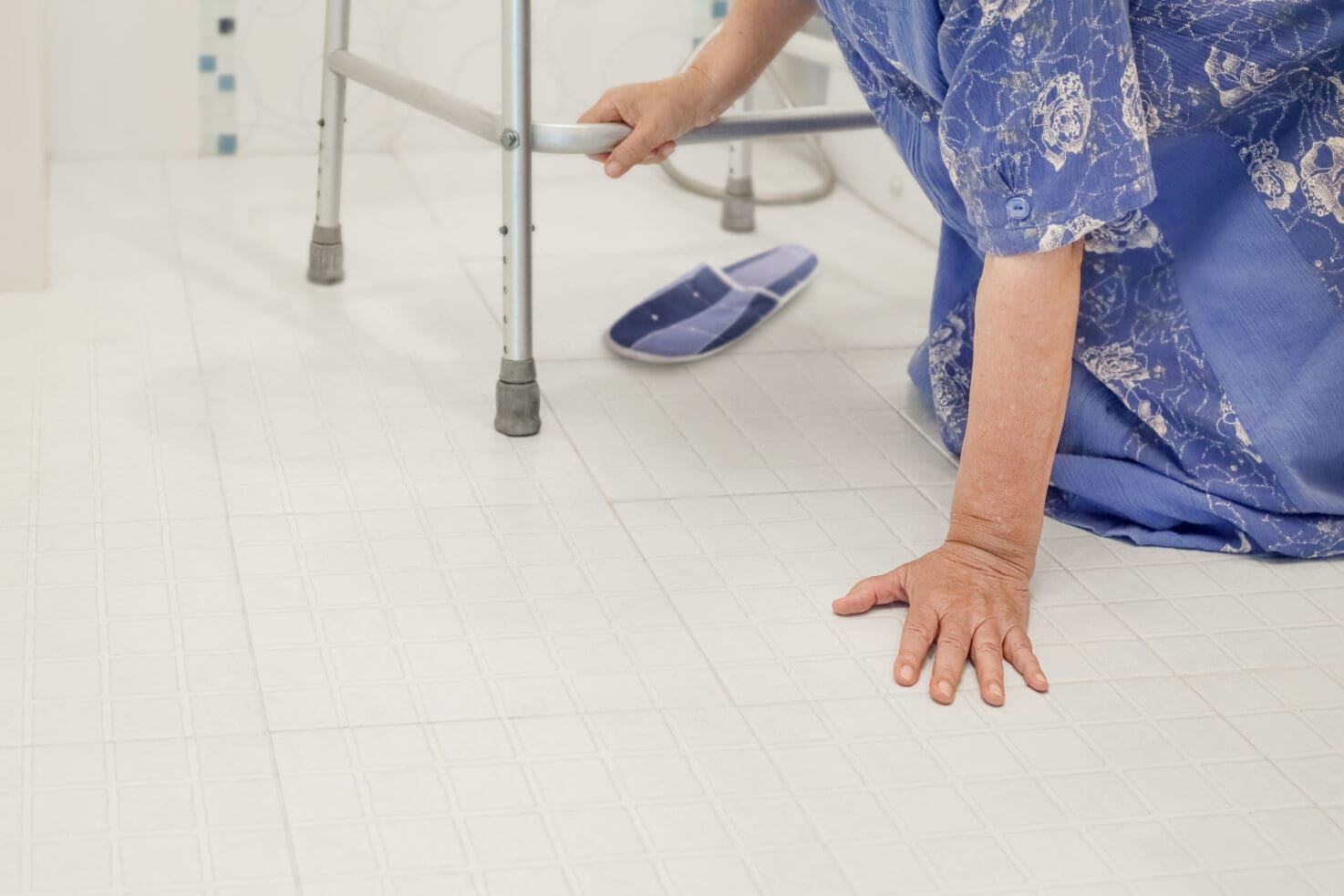A bad fall as one ages can be the catalyst for a decline in health conditions. Long recovery times with reduced mobility can leave people less mobile and more frail than they were prior to their fall. If you have an aging loved one or parent you are helping care for, preventing falls should be a number one concern.
What are the Most Common Causes of Falls?
- Wet or polished floors or floors with spilled items
- Dim light
- Rugs/carpets that are not properly secured
- Reaching for objects on high shelves
- Stairs
- Household clutter
Which Medical Conditions Cause an Increased Risk of Falls in the Elderly?
- Heart disease
- Dementia
- Low blood pressure (hypotension)
- Poor vision
- Muscle weakness
- Conditions of the ear that affect balance
- Colds, flu, and chest infections/other common infections
- Conditions involving fatigue
How Does the Aging Process Increase the Risk of Falls?
- Reduction in mobility
- Stiffness in joints
- Brittle bones
- Reduction of feeling in feet or legs
- Weaker muscles
How to Help Prevent Falls in the Elderly:
There are a variety of steps that one can take to both prevent falls, and if a fall happens, be prepared to handle the situation in the most efficient manner.
1. Make a Doctor’s Appointment – A fall prevention plan can be created with your doctor, or CareAparent, and can really help to clarify and increase awareness of fall risks specific to you, such as how any medication you take might increase the risk. Discuss previous falls and what you should do if they happen, as well as reviewing any health conditions you might have that can increase your risk.
2. Keep Active – Keeping yourself mobile and physically active can help reduce the risk of falls exponentially, and, should you fall, can help reduce the risk of serious injury. Of course, aside from day-to-day mobility, you should get an ok from your doctor regarding physical exercise, but options such as swimming and water workouts for example are a great option for gentle yet thorough exercise. Your doctor may also suggest visiting a physical therapist. Working with a physical therapist will help you strengthen weakened muscles through stretching exercises, as well as develop an exercise routine best suited to your physical needs.
3. Wear Sensible Shoes – This may seem like an obvious choice but wearing well-fitting shoes with ‘grippy’ non-slip soles is a must when it comes to fall prevention, particularly if your home has lots of wooden, tiled, or non-carpeted floors. If you like wearing slippers around your home, opt for slippers that fit around your foot like a shoe, and not those with an open ‘floppy’ back.
4. Reduce Clutter/Home Hazards – Assess your home for trip hazards. Try to keep floor spaces as clear as possible, and ensure carpets and rugs are properly secured.
*Check out our blog for more tips on reducing clutter as you age!
5. Have a Well Lit Home – Ensure your home is well lit. This will help you to avoid tripping on banging into objects around your home and spot any unexpected hazards (such as spills) before they can be of a risk to you.
Offer Assistance to Your Loved One
Most importantly, ask your loved one how you can help. They may know of home repairs that have otherwise been overlooked that you could help with or may just feel better with someone accompanying them to speak with their doctor about fall hazards. Reaching out to ask how you can help lets your parent or loved one know that you’re ready and willing to help keep them safe from falls, so they can maintain their mobility well into their advanced years.
It’s our mission to help seniors live as independently as possible for as long as possible. Visit our blog for additional resources like this one, or call us at 651.702.HOME (4663) to learn more on how we can help your loved one and to request a complimentary consultation.

